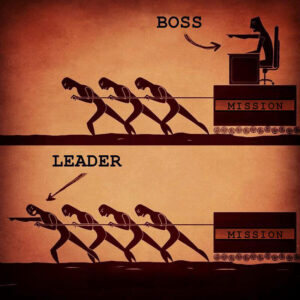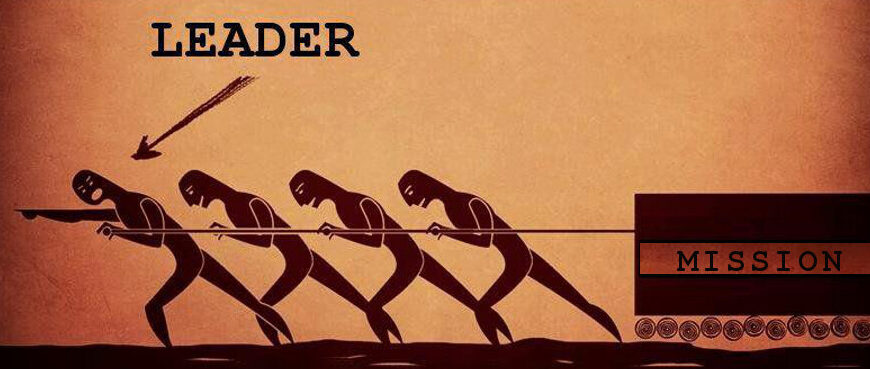About 2 years into my first “real job” out of college, I was having a weekend visit with my mother and complaining about an executive at the energy efficiency implementation company I worked for. “She micromanages everything but doesn’t even know what we do all day!” I remember exclaiming. “She doesn’t think we’re capable of handling the client, and she shuts down all of (my manager) Dan’s* actually good ideas. Our team works so well together, and the client is happy with us…it doesn’t make sense!”

This wasn’t the first time I’d criticized the executive. Even with little experience, I could feel how strongly the executive disliked us. Not because of personality, and not because we didn’t do our jobs well. It was a different brand of distaste; deeply rooted in hierarchy. We (including Dan) were “lower” in the organizational order of the company, and the executive made sure to remind us of that often. She sneered at the staff but was all smiles among other executives. It was impossible to ignore, and extremely frustrating.
My mother sat back in her chair and paused before responding. She’d recently retired from 30 years in the public school system, and had witnessed many tough administration changes and the escalation of state testing as a means to test students’ (and teachers’) worth.
“Listen to me, and listen well, because you’re going to face this for as long as you’re working,” she started. “A” leaders hire “A+” staff. “B” bosses hire “C” and “D” staff.”
I didn’t fully understand what she meant. She explained:

“A leader will hire the best employees, even if it means those employees will surpass the leader. A boss will hire those whom they think will never aim for roles higher than the boss. Dan wants to nurture your team so that you all feel confident and capable to continue this work regardless of whether he’s there. His worth as a leader lies in his team. The executive wants admiration for having a more impressive salary than you do. Her worth lies in her title.”
This message stuck with me over the next many years of employment, election cycles, and graduate school, and has changed the way I view the notion of “leadership” entirely. As I prepare to enter the professional workforce again, this time with a Master’s degree, I’ve found there are some “leadership” qualities that job-seekers should be on the lookout for, in sustainability fields or anywhere else. Times are changing, and so is the notion of the workplace. Regardless of your rank, you are an integral part of the operation, especially if it’s mission-based. Let me say that again:
Regardless of your rank, you are an integral part of the operation.
In hunting for a job, and perhaps also for a leader, keep the following advice in mind:
- Money doth not a leader make!
This should be a given, but sometimes we need reminders that the folks that make the most don’t inherently lead the best. Quality leadership cannot be measured in dollars. If you work in a hierarchical structure, does your supervisor value your work, and tell you? Does he/she/they guide you in finding the skills and confidence to work independently? Does he/she/they ever ask you what you need to do your job well and happily, or to stay? Handing out task lists is what bosses do. Making sure employees have platforms to be heard and resources to do their work is what leaders do, and it might not result in the highest pay grade.
- A good leader knows when to follow
I recently brought a scheduling issue to the owner at my part-time job. I needed to shift the schedule for a weekend training, but didn’t want to create any difficulties for other employees, as we were all carpooling to a location an hour away. Rather than simply ask for the schedule change, I came in with a plan in place that not only met the needs of my own schedule, but actually saved carpool drivers hours and miles on the road. Because I knew the area we were going better than she did, she trusted my plan and let me rearrange the schedule in ways that benefitted everyone. This is a simple example, but it’s certainly transferrable. If you know your work, if you are THE knowledgeable person on a work subject, the leader in your professional space should trust you to have the answers.
- Don’t overlook worker-owned cooperatives
If you truly want to be part of the leadership team, explore worker cooperatives. In this model, each employee has an equal share of the business. Workers have control over how the business is operated, typically through voting on decisions. Per recent research, worker-owned cooperatives witness on average 4-5% higher productivity levels, lower employee turnover, higher profits, and higher worker wages. When you ARE the company, your opinion matters. Worker-owned cooperatives are on the rise, and are certainly worth exploring.
Being new to the job market doesn’t mean you have to blindly follow the boss into the unknown and ill-informed. A true leader should and will spark your ability to grow and learn, and perhaps someday lead.
*names have been changed.

